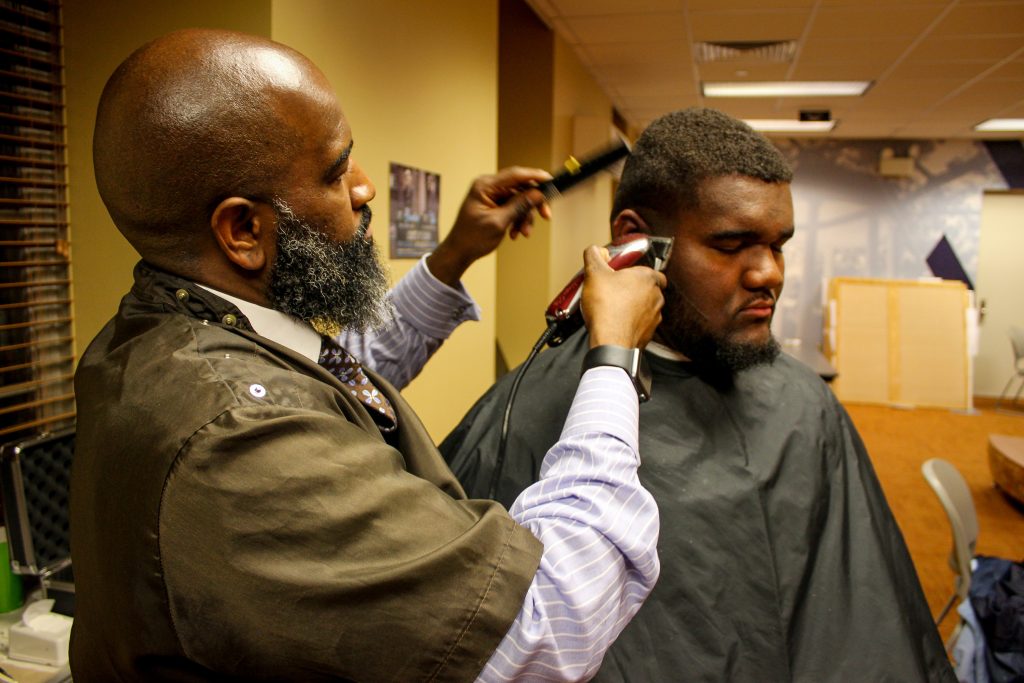
Langden Ramseur enjoys a moment in the chair of local barber Brian Toulan. (photo by Tyris Gillis)
Program provides welcome spaces — haircuts sometimes included — for men of color to navigate UNC
It’s no secret that some men of color face formidable obstacles in completing college, particularly at a highly selective institution such as UNC. Sometimes success lies in finding a welcoming place and a sympathetic ear.
Carolina’s Office for Men of Color Engagement (menofcolor.unc.edu), launched in 2013, features several initiatives to help students develop academically, socially and professionally. The staff seeks to create an environment where men of color feel welcome and supported.
Designed to boost graduation rates for UNC’s approximately 1,200 under-represented men of color, the program includes monthly meetings that cover topics from career development and professional growth to adjusting to college life and building a support network. It also connects students with alumni and helps them secure internships, study abroad and research opportunities.
“I really want the quality of life to improve for these students,” said Christopher Faison (history and African, African American and diaspora studies ’00, MAT ’01), who coordinates the program, which is part of the Center for Student Success and Academic Counseling. “I want them to graduate on time and I want them to be able to do great things. But I also want them to know that we care.”
About 83 percent of UNC students graduate within four years, which is among the highest rates in the nation for public institutions, but for under-represented men of color, the four-year graduation rate is around 70 percent, Faison said.
A highlight event is the once-a-semester “Barbershop Talks” in residence halls. Local barbers cut students’ hair free of charge while the students chat with each other, graduate and professional students, staff and administrators, and alumni.
The idea is this: In communities of color, the barbershop is usually a place where men can let their proverbial hair down. While students get “a new line,” they can talk frankly — about negative stereotypes, problems that keep them up at night or troubling current events.
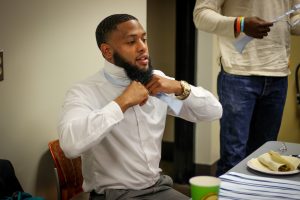
At a fall Barbershop Talk, Brandon Callender (economics and journalism ’20) learned how to improve his resume formatting and how to tie a tie. That was a good thing: “I had literally an interview for an internship scheduled the very next day,” said Callender, who wants to be a teacher or journalist.
The monthly meetings typically draw about two dozen students from a mix of backgrounds. Many attended economically challenged schools that lacked the resources to offer college preparatory or advanced placement courses.
Terrell “Tae” Brown (Spanish literature and culture/global studies ’17), was raised by a single mother in a drug-riddled part of Henderson County. He said he likes the fellowship of the monthly meetings and the group talk about “whatever is plaguing us, making us happy,” or to “just chill. … The understanding just happens.”
Meetings have included talks by faculty members, a representative from the honor system and academic advisers. A mental health session was also a big hit.
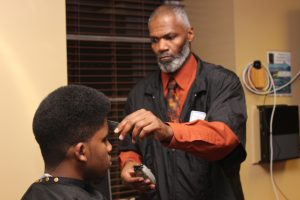
Faison works closely on the meetings with Tyris L. Gillis, Manning East residence hall community director, who plans topics and coordinates speakers, and Hazael Andrew, an assistant director for UNC’s Housing & Residential Education.
To help students better navigate college, Gillis encourages them to think about what message it sends when they sit in the back of the class rather than the front. He tells them to reach out to professors — something they may not be used to doing.
“There are a lot of resources here at UNC,” added Andrew. “My experience is students who do not succeed are the ones who are not aware of the resources that are available.”
By Pamela Babcock
Published in the Spring 2017 issue | Features
Read More
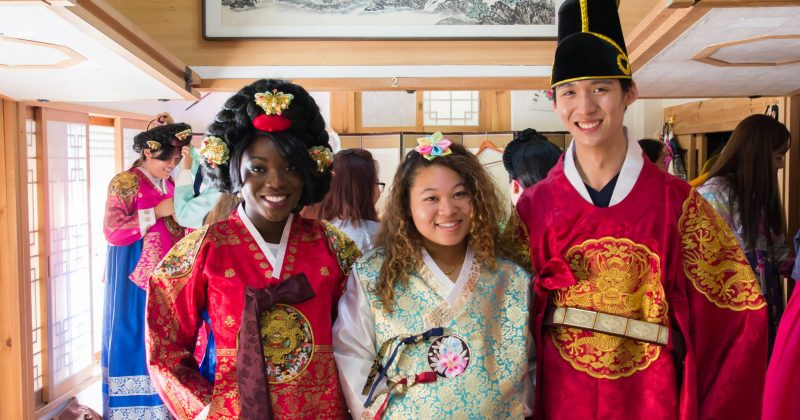
UNC in top 25 for study abroad
UNC-Chapel Hill ranks 19th among all U.S. higher education institutions…

Less driving linked to decrease in roadway fatalities
A new study in the American Journal of Preventive Medicine…
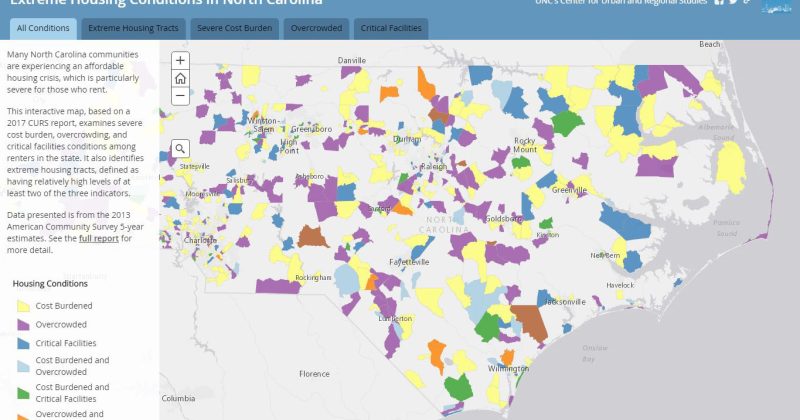
N.C. facing statewide crisis in affordable rental housing
Many communities in the state are experiencing an affordable housing…

